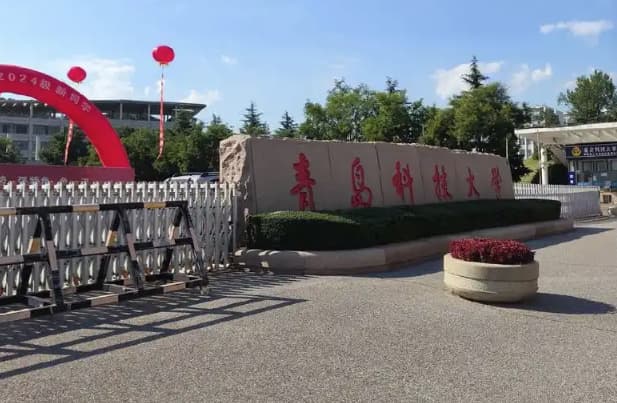Mastering English Graduate Entrance Exams: Your Ultimate Book Recommendation Guide
In the competitive landscape of English graduate entrance exams, selecting the right study materials can make all the difference. This guide provides a comprehensive overview of essential books tailored for English majors aiming to excel in their exams. Whether you're focusing on literature, linguistics, or translation, our recommendations are designed to bolster your preparation with structured, high-quality resources. We understand the challenges of navigating the vast array of study aids, so we've curated a list that balances theory, practice, and critical analysis—ensuring you're well-equipped to tackle every question type. Let’s dive into the most frequently asked questions about book recommendations for English grad exams.
Frequently Asked Questions
1. What are the must-have books for English literature preparation?
When it comes to mastering English literature for graduate entrance exams, a well-rounded collection of books is essential. At the core of your study arsenal should be classic literary anthologies that cover a broad spectrum of genres, time periods, and authors. One indispensable resource is The Norton Anthology of English Literature, which provides an extensive selection of texts from medieval to contemporary works. This anthology is particularly favored for its comprehensive introductions and critical insights, making it easier to contextualize each piece within its historical and cultural framework. Complementing this, Practical Criticism: A Study of Literary Judgment by I.A. Richards offers a deep dive into analytical techniques, which is invaluable for essay-based questions. Additionally, specialized books like How to Read Literature Like a Professor by Thomas C. Foster can demystify complex literary devices and themes, enhancing your interpretive skills. Don’t forget to pair these with practice guides such as Cracking the GRE with Verbal Reasoning by Princeton Review, which includes targeted literature-focused passages and strategies for standardized exam questions. Lastly, engaging with critical essays and journals like MLA Studies in Language and Literature can provide advanced perspectives, helping you to articulate nuanced arguments in your responses.
2. Which linguistics books are most effective for exam preparation?
For English majors delving into linguistics, the right books can significantly streamline your exam preparation. A foundational text that every student should consider is Introduction to Linguistics by Peter Matthews, which offers a clear, systematic overview of key concepts like phonology, syntax, and semantics. Its accessible yet rigorous approach makes it ideal for building a strong theoretical base. Another gem is Language and Linguistics: An Introduction by Larry Trask, which is particularly praised for its engaging style and practical examples, making complex topics more digestible. To sharpen your analytical skills, Pragmatics: An Introduction by George Yule is a must-read, as it focuses on how context influences language use—a crucial aspect often tested in exams. For those interested in sociolinguistics, Sociolinguistics: A Very Short Introduction by Peter Trudgill provides concise yet insightful coverage of language variation and its societal implications. Additionally, Language Acquisition: An Introduction by Michael Tomasello delves into how humans learn language, offering a unique perspective that can be beneficial for essay questions. To reinforce your learning, practice workbooks like Exercises in Linguistics by John Lyons provide targeted exercises, while GRE Vocabulary Flash Cards by Mometrix can help expand your lexical range, which is often tested in linguistics sections. Remember, combining these resources with mock exams and discussion groups can further solidify your understanding.
3. Are there any specialized books for translation studies that are highly recommended?
In the realm of translation studies, selecting the right books can greatly enhance your exam performance. A cornerstone text for any translation student is Translation Studies: An Advanced Resource Book by Mona Baker, which offers a balanced mix of theory and practice. Its structured approach, divided into thematic sections, makes it easy to grasp complex concepts like equivalence, culture, and terminology. For a more hands-on perspective, Computers and Translation: A Practical Guide by James D. Brown is invaluable, especially if your exam includes machine translation or computational linguistics sections. This book bridges the gap between traditional translation techniques and modern technological advancements. Another essential read is Translation and the Web by Rosemary Arrojo, which explores the challenges and opportunities of translating digital content—a growing area in the field. To hone your practical skills, Translation Practice in the Modern World by Jeremy Munday provides a series of translation tasks across various genres, from legal to literary texts. Additionally, English-Spanish, Spanish-English Legal Translation by Anna T. Pym is highly recommended for exams with a focus on specialized translation areas. Don’t overlook the importance of reference materials like Collins Chinese-English Dictionary or Langenscheidt Standard Chinese Dictionary, as strong vocabulary and terminology knowledge are critical. Finally, supplement your studies with The Translator’s Handbook by Lawrence Venuti, which offers practical tips and case studies to refine your translation style. Combining these resources with regular practice and feedback from peers can make a significant difference in your exam results.


.jpg)
.jpg)
.jpg)
.jpg)

.jpg)
.jpg)
.jpg)